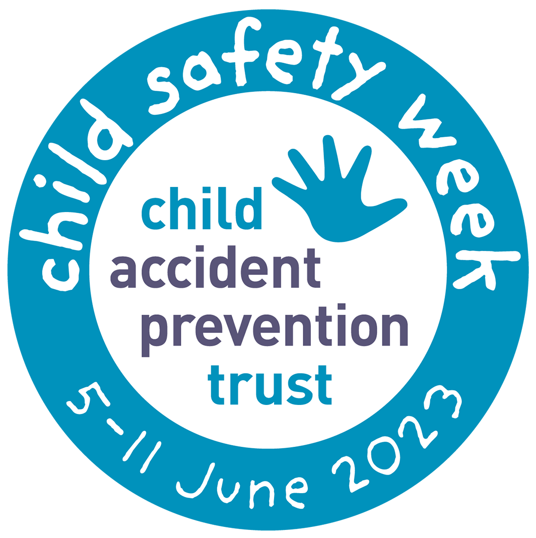Safeguarding Our Little Ones: Child Safety Week 2023

Child Safety Week is an annual campaign aimed at raising awareness and promoting action to protect children and prevent accidents. It is typically organised by the Child Accident Prevention Trust (CAPT), a UK-based charity dedicated to preventing childhood accidents.
Child Safety Week focuses on different themes each year and provides resources, guidance, and educational materials for parents, caregivers, professionals, and communities to promote child safety. The campaign aims to highlight common hazards and risks that children may face in their daily lives, such as road safety, water safety, fire safety, and preventing accidents in the home.
During Child Safety Week, various events and activities are organised across the country to engage families, schools, and organisations. These may include workshops, training sessions, educational campaigns, and initiatives to spread awareness about child safety and provide practical advice on how to prevent accidents.
The ultimate goal of Child Safety Week is to reduce the number of accidents involving children and to promote a safer environment for them to grow and develop. By providing information and resources, the campaign empowers parents and caregivers to take proactive measures in protecting their children from potential dangers.
Child Safety Week can be incorporated in schools in various ways to raise awareness and educate students about important safety measures. Here are some ideas for incorporating Child Safety Week in schools:
Assemblies and presentations: Organise special assemblies or presentations during Child Safety Week to introduce the campaign and discuss different safety topics. Invite guest speakers, such as representatives from local safety organisations or emergency services, to share their expertise and engage students in interactive discussions.
Safety-themed lessons: Devote classroom time to specific safety lessons related to topics like road safety, fire safety, water safety, or online safety. Use age-appropriate materials and interactive activities to make the lessons engaging and memorable for students.
Poster or art competitions: Hold poster or art competitions where students can create artwork that reflects different safety messages or depicts safe behaviours. Display the winning entries throughout the school to reinforce safety awareness.
Safety drills and simulations: Conduct safety drills and simulations during Child Safety Week to practice emergency procedures, such as fire drills or lockdown drills. Ensure students understand the importance of following safety protocols and emphasise the role of preparedness in keeping themselves and others safe.
Parent and community involvement: Encourage parents and caregivers to participate in Child Safety Week by hosting workshops or information sessions. These sessions can provide practical tips and resources for parents to reinforce safety practices at home.
Safety-themed projects and displays: Assign projects or group activities where students can research and create displays on different safety topics. These displays can be showcased in school corridors or common areas to raise awareness among students, staff, and visitors.
Collaborate with local organisations: Partner with local safety organisations, emergency services, or community groups to organise demonstrations, workshops, or interactive sessions related to child safety. This collaboration can provide students with real-world examples and expert guidance on safety practices.
Peer mentoring programs: Establish peer mentoring programs where older students can mentor younger students on safety practices. This can include activities like buddy systems during school trips, teaching younger students about road safety, or leading discussions on online safety.
Remember to tailor the activities and messages to the appropriate age groups and ensure that they align with the school’s curriculum and guidelines. By incorporating Child Safety Week in schools, you can help create a culture of safety and equip students with essential knowledge and skills to protect themselves and others.
To help with this rTriibe have collected the following resources for both the classroom and the home, to support you in this important week.
Child Accident Prevention Trust (CAPT) –
Free downloadable resources – https://capt.org.uk/resource-centre/
Parent’s pack – https://capt.org.uk/resources/parents-pack/
Twinkl – https://www.twinkl.co.uk/event/child-safety-week-2023
Red Cross – https://www.redcross.org.uk/get-involved/teaching-resources/kindness-safety-and-first-aid-at-home
Children’s Burn Trust – https://www.cbtrust.org.uk/child-safety-week/